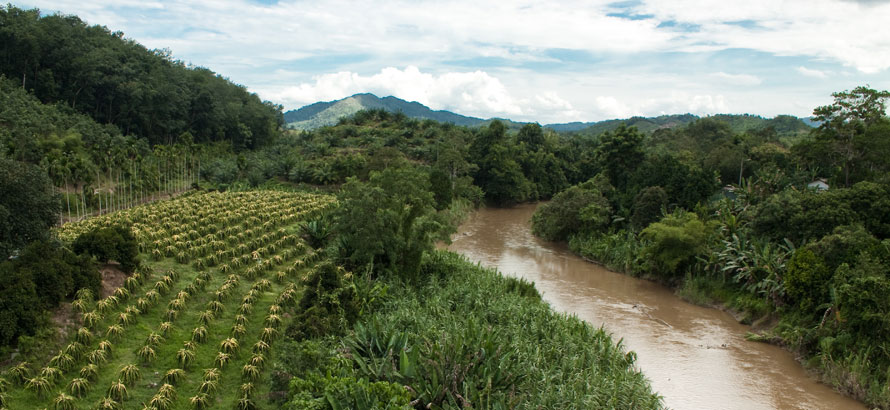
Tropical forests now cover less than 5% of the world’s surface but are home to the majority of species on land. The staggering expansion of oil palm agriculture has become a primary threat to biodiversity by fueling tropical deforestation in Southeast Asia. To date, scientific research and public concerns have overlooked the effects of oil palm expansion on wildlife in remaining forests, including fragmentation, edge effects, and increased hunting pressure.
Matthew Luskin‘s research focuses on wildlife conservation in the forests remaining within oil palm plantation landscapes. The photo above shows the agricultural matrix from Matthew’s field sites in Peninsular Malaysia (2010). He sought to understand how habitat conditions within oil palm plantations may affect wildlife, such as arthropods, reptiles and bats (Luskin & Potts 2011). This work was aided by a variety of UC Berkeley undergraduates, including Elaine West, Tara DiRocco, and Mikaela McCarthy. For more information, visit:
